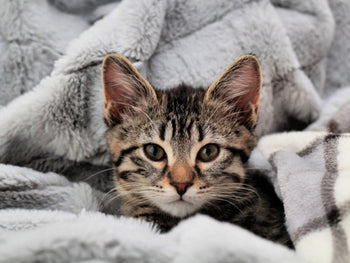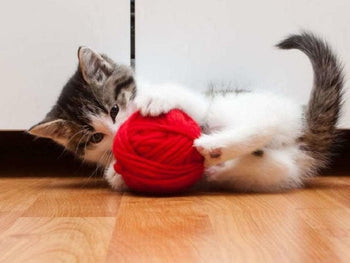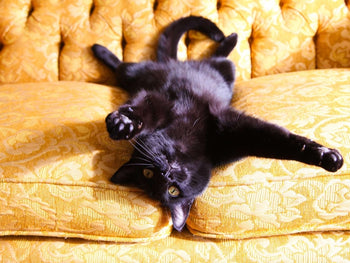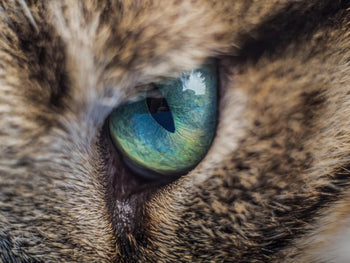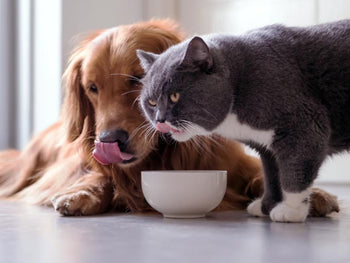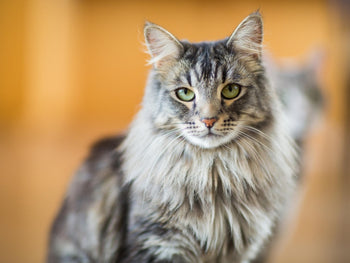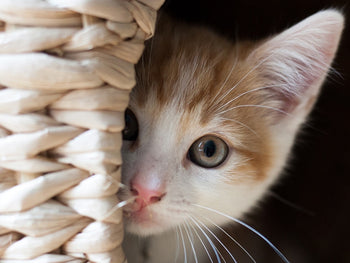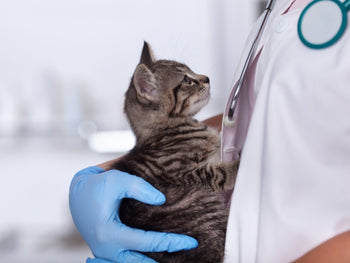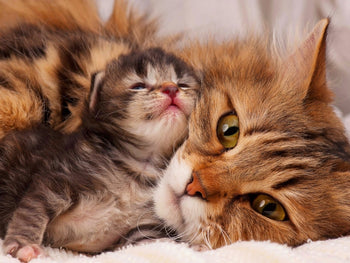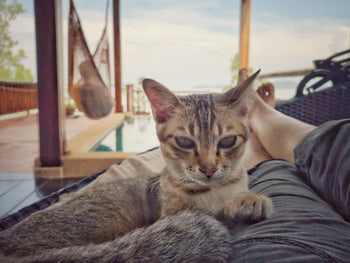Your fluffy friend keeps meowing as it uses the litter box? Then check out is this article to learn more about the issue of "cat meows while pooping".

The average cats often visit the litter box a couple of times a day to answer the call of nature. In most of the case, the pets take care of their business in silent and leave the box right afterward. That being said, cats that are suffering from certain health ailments would meow repeatedly as they use the litter box. So if you notice that your cat meows while pooping, it's highly likely something is wrong with him/her. But what needs to be done in order to resolve the situation? Should you take your pet to a veterinary clinic at once? Is the chance of full recovery high?
You are a first-time pet owner so you don't know much about the "cat meows while pooping" issue? In that case, you have come to the right place. This article shall show you everything people have to keep in mind if their pet starts meowing all of the sudden in the litter box. Once you manage to grasp the fundamentals, it's a breeze for you to come up with a sensible solution. Generally speaking, most cats run into defecation difficulty once in a while so as long as you react properly, you could tackle the root of the trouble with relative ease.
The Causes Of The Issue

Normally, cats only meow in the middle of defecation if they experience pain and discomfort. That is why to put an end to the issue of "cat meows while pooping", you must deal with the cause as soon as possible. Here are a couple of suspects that you should remember.
Similar to humans, cats that have constipation tend to wear themselves out attempting to poop. The pets go through a lot of hardships during the entire process which causes them to inadvertently vocalize their suffering. Most of the time, you should be able to cure your pet constipation by implementing changes in the diet. For instance, if you add fiber-rich foods like pumpkin to the daily meals of your cat, occasional constipation shall subside within a few moments. In case constipation lasts for multiple days, schedule a visit to the local vets.
-
Colitis
To put it plainly, colitis is used to describe the inflammation of the intestine which gives your pet a hard time in the litter box. Colitis-affected cats usually produce stools with blood, go to the box more often than normal, miss the litter pan,... Many things could lead to the appearance of colitis in cats so it's of utmost importance to keep a close eye on your pet. If possible, you should think about giving some parasite preventatives to your cat every month. In addition to that, only introduce new foods in small quantities in order to gauge the response of the pet.
-
Pseudocoprostasis
If your cat is a long-hair breed, there is a good chance that pseudocoprostasis is what causing him/her to meow constantly while pooping. All cats groom themselves but long-hair cats must invest more time and effort compared to their short-hair cousins because of their lengthy furs. Once the pets slack behind on the grooming for some reasons, matted furs form and a couple of them might concentrate around the cat rear. The furs then collect feces which eventually block the pet anus hole and pseudocoprostasis is the name of that condition
-
Stricture
If the anal opening of a cat becomes constricted, the pet is suffering from stricture. Overall, stricture takes place in the case the cat rectal is reduced in size due to the presence of scar tissues, injuries, aggressive cancer growths,... Since the anal opening is not as big as usual, stools would have trouble passing to get to the outside. To force the defecation through, cats shall strain their body to push the feces out but they have few successes.
Get your cat to a veterinary clinic if you suspect that stricture is the culprit behind the litter box meowing.
-
Miscellaneous
Beside health ailments that prevent cats from having a peaceful time in the litter box, there are other factors that you should take a look. Because cats are avid groomers, they lick themselves for hours which means they tend to swallow their furs by mistake. As time passes by, the fur build-ups inside the pets get so big that they outright block the colon. After that, cats need some assistance to remove the furs. The same situation might happen with other materials that cats accidentally consume such as bone, string, rubber bands and alike.
Check us out for various astonishing cat tips & facts!
The Safest Option: Get The Vets To Perform A Check

Although it's possible to tackle the "cat meows while pooping" issue on your own in some cases, consider contacting the vets your first solution. Only trained professionals are able to analyze the situation, locate the cause and offer advice on treatments for specific cats. Under no circumstances should you give your cat drugs without consulting qualified vets in advance as it could worsen the health of the frail pet. In addition to that, you must take good care of your cat during the treatment process to facilitate its recovery.
Re-familiarize Your Cat With The Litter Box: Expert's Instructions

After your cat is back in shape, it often afraid to use the litter box again because of unpleasant memories. The followings contain a couple of tips and tricks to help you introduce your cat to the litter box again.
- Put the favorite toy of your pet near the litter box so it feels relaxed.
- Make sure that the litter box is located in a quiet room with an excellent all-around vision for the pet.
- Take care of all "pooping incidents" using purpose-design enzymatic cleansers to eliminate the odor.
- Remember spots in the house that your cat likes to visit and set up some litter boxes around such locations.
- In the case you cat repeatedly takes care of its business in unacceptable places, arrange some deterring objects (aluminum foils, sticky tape, upside down carpets,...)
For more Cat's Health Guides, please visit Cattybox
